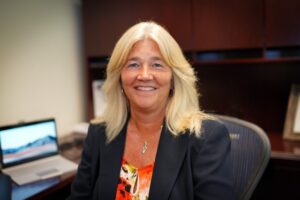
In this monthly column, Defense Daily highlights individuals from across the government, industry and academia whose efforts contribute daily to national defense, from the program managers to the human resource leaders, to the engineers and logistics officers, to defense entrepreneurs. Lisa Finneran is the vice president of engineering with General Dynamics Mission Systems, responsible for engineering execution across 60 major sites and 7,000 employees. She has had an 18-year career with General Dynamics and previously served as director of engineering…












